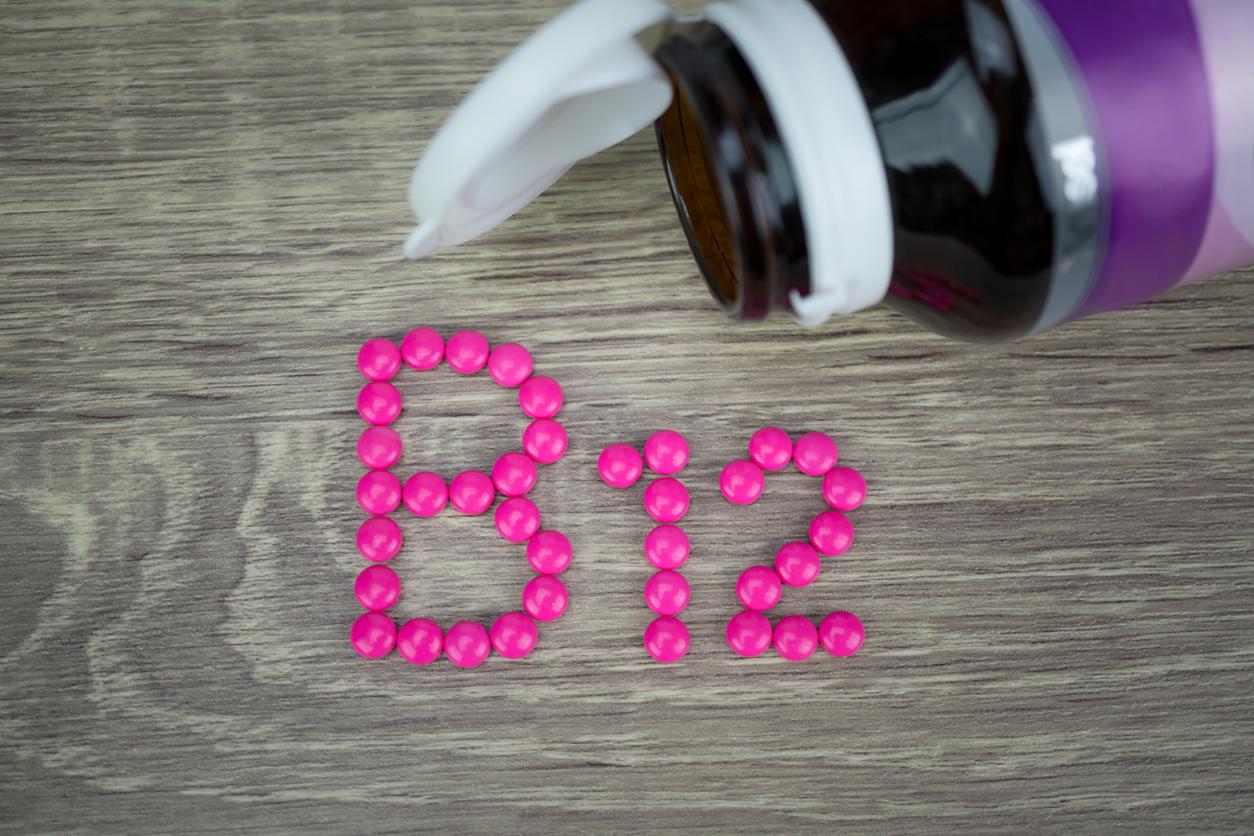Vitamin B12 deficiency has many health consequences. It is common among vegans but anyone can be affected. A nutritionist expert on the subject explains it to you.

- Vitamin B12 is mainly found in foods of animal origin: offal, seafood, meat, fish, eggs and dairy products. B12 deficiency is therefore particularly common among vegan dieters.
- According to Health Insurance, people with a deficiency can suffer from anemia, paleness, shortness of breath, chronic fatigue, palpitations, headaches, dizziness, difficulty concentrating, finding motivation, etc.
- According to ANSES, a vitamin B12 deficiency can also impact the brain and spinal cord, with neurological damage and motor disorders. Finally, some patients also suffer from irritability, memory and mood disorders.
Vitamin B12 is quite rare in the diet and is mainly found only in foods of animal origin. 4 micrograms (µg) per day of vitamin B12 is sufficient for the needs of adults over 18, according to ANSES. But they are not assured, there is a risk of deficiency which can negatively affect overall health as well as quality of life.
Diane Cressassociate professor of nutrition and food science at Wayne State University (Michigan, USA), returns for The Conversation on the consequences that a vitamin B12 deficiency can have on health.
Vitamin B12 deficiency: what symptoms?
“One of the main symptoms of a B12 deficiency is fatigue – a level of tiredness or exhaustion so profound that it affects activities of daily living”begins the nutritionist.
“Other symptoms are neurological and can include tingling in the extremities, confusion, memory loss, depression and difficulty maintaining balance. Some of them can be permanent if the vitamin deficiency is not treated”she adds.
However, despite these signs, doctors and other healthcare providers may have difficulty diagnosing a deficiency, as there are so many possible causes for these symptoms. Some people who have a healthy diet may also think that it is not possible for them to have a vitamin deficiency.
What causes vitamin B12 deficiency?
However, the absorption of vitamin B12 by the body during digestion is a very complex process, as Diane Cress explains. And when a breakdown occurs at some point in the various stages of absorption, there may be a risk of deficiency, even if there is enough vitamin B12 in our diet. Salivain particular, is essential for the absorption of B12 by the body.
Gold, certain medications inhibit our ability to absorb vitamin B12, causing dry mouth and too little saliva production. “They include opioids, inhalers, decongestants, antidepressantsthem blood pressure medication and the benzodiazepinessuch as Xanax, used to treat anxiety”drugs that are widely prescribed, says Diane Cress.
Another potential contributor to vitamin B12 deficiency is low stomach acid. In particular, this can be caused by the prescription of anti-ulcer drugs that reduce the stomach acids that cause ulcers. “Researchers have firmly established a link between the use of these drugs and vitamin B12 deficiency”underlines the nutritionist.
To the list of common causes of B12 deficiency, we can also add a inadequate pancreatic function – about one third of patients with impaired pancreatic function develop a deficiency vitamin B12 – and metformin, a drug used to treat type 2 diabetes, which has long been associated to vitamin B12 deficiency.
Finally, the production of stomach acid can also decrease with age. This puts the older population at particular risk of vitamin B12 deficiency.
Treatment: how to treat vitamin B12 deficiency?
“If you have potential symptoms of vitamin B12 deficiency and also have any of the above risk factors, you should see a doctor to get tested. Appropriate lab workup and discussion with a physician is necessary to discover or rule out whether inadequate levels of B12 might be involved”recommends the professor.
“The type of treatment and length of recovery depends on the cause and severity of vitamin B12 deficiency. Full recovery can take up to a year, but is entirely possible with proper treatment”she continues.
the treatment may be oral, applied under the tongue or administered through the nose, or it may require various types of injections. A B12 supplement or a balanced multivitamin diet may be enough to correct the deficiency, but Diane Cress stresses that it’s best to work with a doctor to ensure proper diagnosis and treatment.

















